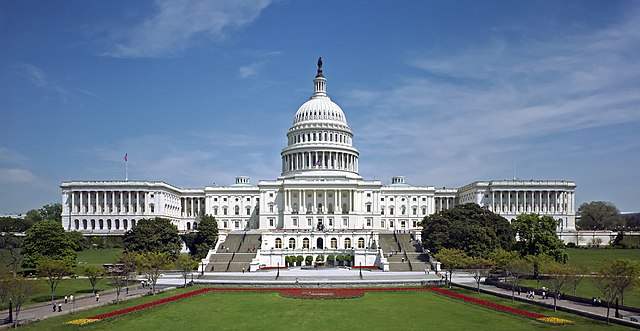Bicameralism is a type of legislature that is divided into two separate assemblies, chambers, or houses, known as a bicameral legislature. Bicameralism is distinguished from unicameralism, in which all members deliberate and vote as a single group. As of 2022, roughly 40% of the world's national legislatures are bicameral, while unicameralism represents 60% nationally and much more at the subnational level.
The Palace of Westminster, seat of the Parliament of the United Kingdom
The United States Capitol, seat of the United States Congress
The New Sansad Bhavan, seat of the Parliament of India
The National Congress of Brazil, seat of the Chamber of Deputies and the Federal Senate
A legislature is a deliberative assembly with the legal authority to make laws for a political entity such as a country, nation or city. They are often contrasted with the executive and judicial powers of government. Legislatures can exist at different levels of government–national, state/provincial/regional, local, even supranational. Countries differ as to what extent they grant deliberative assemblies at the subnational law-making power, as opposed to purely administrative responsibilities.
United States Capitol building, where the legislature of the United States, the United States Congress, meets, located in Washington, DC
The Congress of the Republic of Peru, the country's national legislature, meets in the Legislative Palace in 2010.
The German Bundestag, its theoretical lower house
The Australian Senate, its upper house








